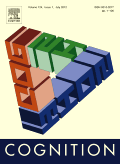
JOURNAL OF COGNITIVE NEUROSCIENCE
Scope & Guideline
Exploring the neural pathways of thought.
Introduction
Aims and Scopes
- Neural Mechanisms of Cognition:
The journal publishes studies that delve into how various cognitive functions such as memory, attention, language, and perception are represented in the brain, often using neuroimaging techniques like fMRI and EEG. - Methodological Innovations:
A strong emphasis on innovative methodologies is evident, with papers employing advanced techniques such as transcranial magnetic stimulation (TMS), machine learning, and computational models to explore cognitive processes. - Developmental and Lifespan Perspectives:
Research examining cognitive development across the lifespan, including studies on children, adolescents, and older adults, is a consistent theme, highlighting how cognitive abilities evolve and are influenced by age. - Social Cognition and Interpersonal Dynamics:
The journal increasingly features research on social cognition, exploring how individuals perceive and interact with others, including the neural correlates of social behaviors, emotions, and decision-making. - Clinical and Applied Neuroscience:
Studies addressing cognitive deficits related to clinical populations, including those with neurological disorders, are prevalent, providing insights into the neurobiological basis of cognitive impairments and potential therapeutic approaches.
Trending and Emerging
- Neural Oscillations and Temporal Dynamics:
Recent studies have increasingly focused on the role of neural oscillations in cognitive processes, exploring how different frequency bands (e.g., alpha, theta) contribute to attention, memory, and perception. - Predictive Coding and Bayesian Models:
There is a growing interest in predictive coding frameworks that conceptualize perception and cognition as processes governed by statistical inference, highlighting how the brain anticipates sensory input. - Interdisciplinary Approaches to Cognitive Neuroscience:
Collaborative research that bridges cognitive neuroscience with fields such as artificial intelligence, developmental psychology, and neuroethics is on the rise, reflecting a holistic approach to understanding cognitive processes. - Emotional and Social Neuroscience:
Research examining the neural correlates of emotional processing and social interactions is increasingly prominent, emphasizing the importance of understanding cognition within social contexts. - Neuroplasticity and Cognitive Training:
A focus on neuroplasticity and how cognitive training can induce changes in brain function and structure is emerging, with studies investigating the efficacy of various interventions for enhancing cognitive abilities.
Declining or Waning
- Traditional Neuropsychological Models:
Research grounded in traditional neuropsychological frameworks appears to be waning, as newer studies tend to favor dynamic and integrated models of cognition that incorporate findings from neuroimaging and computational neuroscience. - Sole Reliance on Behavioral Studies:
There is a noticeable decline in the publication of studies relying exclusively on behavioral measures without accompanying neurophysiological data, as the field increasingly values interdisciplinary approaches. - Static Representational Views of Cognition:
The journal has moved away from static views of cognitive processes, with fewer papers focusing on fixed representations in the brain, instead favoring research that emphasizes the dynamic and flexible nature of cognitive functioning.
Similar Journals

Journal of Neuropsychology
Innovating Insights into Psychological FunctionsThe Journal of Neuropsychology, published by WILEY, is a premier academic journal dedicated to advancing the field of neuropsychology and its related disciplines. With a focus on behavioral and cognitive neuroscience, this journal presents cutting-edge research that informs our understanding of psychological functions and their underlying neural mechanisms. Operating with an impressive impact factor representative of its rigorous peer-review process, the journal has established itself within the Q2 and Q3 quartiles of multiple relevant categories, including Neuropsychology and Physiological Psychology. Researchers will find the ISSN 1748-6645 and E-ISSN 1748-6653 useful for academic referencing as they explore articles that span innovative methodologies and insights into neurological conditions. Published continuously since 2007, the Journal of Neuropsychology stands as a vital resource for professionals and students alike, fostering scholarly discourse and knowledge exchange in neuropsychological research.

JOURNAL OF EXPERIMENTAL PSYCHOLOGY-GENERAL
Pioneering Empirical Studies in PsychologyJOURNAL OF EXPERIMENTAL PSYCHOLOGY-GENERAL, published by the American Psychological Association, is a leading journal in the field of experimental and cognitive psychology. With an ISSN of 0096-3445 and a robust impact factor that reflects its significant contribution to research, this journal serves as a premier outlet for empirical studies that advance our understanding of psychological processes across development and cognition. Covering a wide array of topics from developmental neuroscience to general psychology, it is categorized in the Q1 quartile across multiple fields, making it a vital resource for researchers, professionals, and students alike. The journal has maintained a consistent publication record since its inception in 1975, continuously freeing insights that shape the future of psychology and related disciplines. With rigorous peer review and high standards of scholarly excellence, JOURNAL OF EXPERIMENTAL PSYCHOLOGY-GENERAL remains an essential platform for disseminating innovative psychological research.

COGNITIVE NEUROPSYCHOLOGY
Elevating Knowledge in Cognitive Neuroscience and PsychologyCOGNITIVE NEUROPSYCHOLOGY, published by ROUTLEDGE JOURNALS, TAYLOR & FRANCIS LTD, is a premier academic journal that has established itself as a vital resource in the fields of cognitive neuroscience, neuropsychology, and psychology since its inception in 1984. With an esteemed impact factor that reflects its significance within the academic community, this journal is classified in the Q1 category for Arts and Humanities (miscellaneous) and Q2 in various other fields, including Cognitive Neuroscience and Developmental Psychology, based on the latest evaluation of 2023. COGNITIVE NEUROPSYCHOLOGY provides a platform for the dissemination of innovative research findings and theoretical advancements that deepen our understanding of cognitive processes and behavior in relation to neural systems. The journal also boasts a robust Scopus ranking, ensuring that articles published are of the highest caliber. Though it follows a traditional publishing model, the journal's commitment to rigorous peer review guarantees that it remains an authoritative voice for researchers, professionals, and students devoted to advancing knowledge in these critical areas of study.

Frontiers in Human Neuroscience
Championing Open Access in Neuroscience ResearchFrontiers in Human Neuroscience is a premier open access journal published by FRONTIERS MEDIA SA, dedicated to advancing the understanding of the complexities of human neuroscience. With an ISSN of 1662-5161, the journal has established its prominence in various fields, achieving a Q2 ranking in categories such as Behavioral Neuroscience, Neuropsychology and Physiological Psychology, and Psychiatry and Mental Health as of 2023. Since its inception in 2008, Frontiers in Human Neuroscience has consistently contributed to the scholarly dialogue by offering a platform for innovative research that bridges the gap between neuroscience and behavioral science. The journal's rigorous peer-review process and commitment to open access ensures that findings are readily available, promoting collaboration and progress within the academic community. With an impact on neuroscience disciplines, it stands at the forefront of the field, inviting researchers, professionals, and students alike to engage with cutting-edge studies and developments. The journal's address is located in Lausanne, Switzerland, where it continues to flourish as a hub for neurobiological exploration.

Cognition
Unraveling the Mysteries of the MindCognition, published by Elsevier, is a leading journal dedicated to the exploration and advancement of knowledge in the multifaceted fields of cognitive neuroscience, cognitive psychology, and linguistics. Since its inception in 1972, this prestigious journal has established itself as a prominent platform for disseminating innovative research and critical reviews, achieving a remarkable Q1 ranking across various relevant categories, including Cognitive Neuroscience and Developmental Psychology, as per the 2023 metrics. With a focus on providing insights that are vital for researchers, professionals, and students alike, Cognition boasts an impressive standing in the academic community, evidenced by its high Scopus rankings which place it in the top percentiles in several disciplines. Researchers interested in the cognitive processes underlying human thought, language, and behavior will find Cognition an invaluable resource that publishes cutting-edge findings and fosters interdisciplinary collaboration. Though it operates under a traditional access model, the breadth and depth of its content ensure it remains integral to advancing cognitive science.

Social Neuroscience
Illuminating the Links Between Social Interaction and Brain FunctionSocial Neuroscience is a premier academic journal dedicated to advancing the interdisciplinary field that lies at the intersection of social psychology, behavioral neuroscience, and developmental studies. Published by ROUTLEDGE JOURNALS, TAYLOR & FRANCIS LTD, this journal has made significant strides since its establishment in 2006, with a convergence period extending to 2024. It regularly features innovative research articles that explore the neural basis of social behaviors and the impact of social interactions on brain function. Holding esteemed rankings in Scopus, including Q2 status in both Development and Social Psychology categories, it appeals to a broad array of scholars and practitioners keen on understanding human behavior through a neuroscientific lens. The journal's commitment to fostering critical discussions and publishing impactful research makes it an essential resource for professionals, researchers, and students alike who seek to deepen their understanding of the complex interplay between social processes and neural mechanisms.

Social Cognitive and Affective Neuroscience
Exploring the Neural Ties of Social EmotionSocial Cognitive and Affective Neuroscience, published by Oxford University Press, is a leading academic journal in the fields of cognitive neuroscience and experimental cognitive psychology. With an impact factor placing it in the Q1 category across three disciplines, including medicine, this journal stands at the forefront of research, promoting innovative studies that explore the intricate relationship between social processes and neural mechanisms. Since becoming Open Access in 2017, it has enhanced accessibility for researchers worldwide, facilitating the dissemination and discussion of groundbreaking findings. The journal, which has evolved significantly since its inception in 2006, is ranked among the top 10 in experimental and cognitive psychology and is highly regarded within the cognitive neuroscience community, making it a crucial resource for professionals, academics, and students eager to advance their understanding of the neural substrates underlying social cognition and emotion. The editorial board invites submissions that contribute to the interdisciplinary dialogue surrounding these critical areas of research, ensuring that the journal remains a vital platform for scholarly exchange.

COGNITIVE AFFECTIVE & BEHAVIORAL NEUROSCIENCE
Unraveling the Mind: Where Cognition Meets Emotion and BehaviorCOGNITIVE AFFECTIVE & BEHAVIORAL NEUROSCIENCE (ISSN: 1530-7026, E-ISSN: 1531-135X) is an esteemed journal published by SPRINGER that aims to advance the understanding of the interplay between cognitive processes, affective states, and behavioral responses in the field of neuroscience. Established in 2001, the journal provides a rigorous platform for disseminating high-quality research, with a significant focus on both Behavioral Neuroscience and Cognitive Neuroscience. Classified in Q1 and Q2 quartiles for 2023, it ranks highly within its categories, holding positions of #37 out of 88 and #46 out of 115 respectively in the Scopus listings. Although not an open-access publication, readers can access a wealth of valuable insights and innovative findings that enrich the scientific community's understanding of brain function and behavior. The journal's emphasis on interdisciplinary research contributes to its esteemed reputation, making it a vital resource for students, researchers, and professionals striving to explore the complex nature of the human mind and behavior.

CEREBRAL CORTEX
Shaping the future of neuroscience discovery.CEREBRAL CORTEX, published by Oxford University Press Inc, is a premier journal dedicated to advancing the field of neuroscience, specifically focusing on the cellular, molecular, and cognitive aspects of cortical structure and function. With an impressive impact factor that situates it in the top quartile (Q1) of its categories for 2023, this journal holds significant relevance for researchers and professionals interested in the latest discoveries and methodologies in both Cognitive Neuroscience (ranked #31 out of 115) and Cellular and Molecular Neuroscience (ranked #48 out of 97). Operating without an open access model, it ensures rigorous peer review and dissemination of high-quality research from across the globe. Since its inception in 1991, CEREBRAL CORTEX has established itself as a critical platform for educators and inventors, pushing the boundaries of knowledge in understanding brain function and its implications for behavior. Researchers and students alike will find this journal an invaluable resource for both foundational and cutting-edge studies in neuroscience.

NEUROBIOLOGY OF LEARNING AND MEMORY
Unlocking the Secrets of Learning and MemoryNeurobiology of Learning and Memory is a prestigious journal dedicated to the exploration of the neural mechanisms underlying learning and memory processes. Published by Academic Press Inc Elsevier Science, this journal boasts a strong reputation within the field, as evidenced by its impressive impact factor and high quartile rankings in multiple categories, including Q1 in Behavioral Neuroscience and Q2 in Cognitive Neuroscience. Having provided a platform for groundbreaking research since its inception in 1995, the journal aims to disseminate influential findings that further our understanding of cognitive processes, shaped by robust empirical studies and theoretical developments. Researchers and professionals in neuroscience, psychology, and related disciplines will find invaluable insights and advancements that underscore the journal's commitment to fostering knowledge and innovation within these fields. While it currently operates under a subscription model, its comprehensive coverage of crucial topics positions it as a vital resource for those engaged in the intricate study of learning and memory.